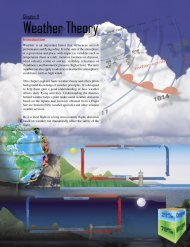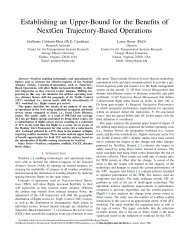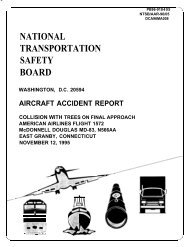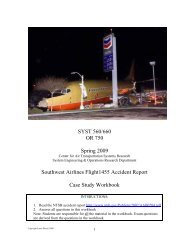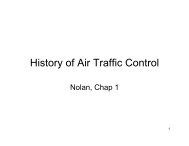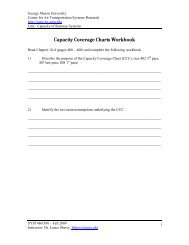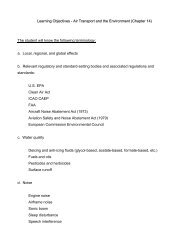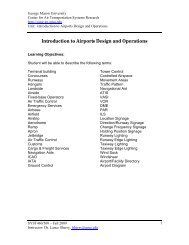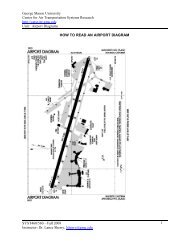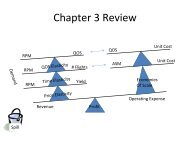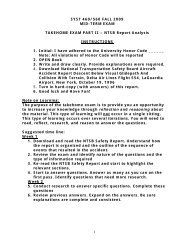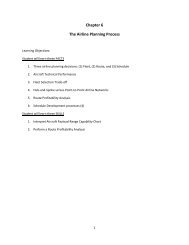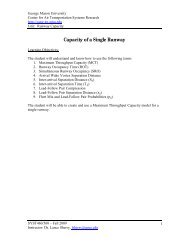Air Traffic Management Concept Baseline Definition - The Boeing ...
Air Traffic Management Concept Baseline Definition - The Boeing ...
Air Traffic Management Concept Baseline Definition - The Boeing ...
Create successful ePaper yourself
Turn your PDF publications into a flip-book with our unique Google optimized e-Paper software.
years, air transport authorities have become increasingly concerned about the interest<br />
shown by anti-trust and competition law authorities in the regulation of international air<br />
transport. <strong>The</strong> establishment of unified regional economic markets has also invoked<br />
concerns about possible adverse effects on the national airlines of non-participating states.<br />
[Ref., page 2-135] (S), (E)<br />
Issue # 3: Changing International Relationships<br />
• Conscious of the pressures for change, ICAO held a major worldwide air transport<br />
conference in Montreal from November 23 to 6 December 1994...attended by more than<br />
800 delegates from 137 ICAO contracting states and from close to 50 interested<br />
international and national aviation organizations, the conference was the biggest and most<br />
important international aviation meeting for 50 years...the most significant decision<br />
emerging was on the controversial issue of multilateralism versus bilateralism. <strong>The</strong><br />
meeting accepted that those two concepts ‘can and do co-exist, and can each<br />
accommodate different approaches to international air transport regulation’. But it also<br />
affirmed that ‘in view of the disparities in economic and competitive situations there is no<br />
prospect in the near future for a global multilateral agreement in the exchange of traffic<br />
rights’. [Ref. 4, page 47-49] (S), (E)<br />
• Sub-issues include:<br />
Market Access: It was agreed that full global market access (‘open skies’) is not<br />
feasible at this time, but the meeting supported the principle of ‘gradual,<br />
progressive, orderly and safeguarded change’, with preferential treatment for<br />
developing nations [Ref. 4, page 50]. (E)<br />
Slot Allocations: Despite many criticisms, the existing voluntary airline system of<br />
slot allocations was recognised as the only tried and tested system offering the<br />
assurance of efficient utilisation of the limited resources available: until a better<br />
system can be devised internationally, it seems likely to remain in operation, but<br />
ICAO will continue to study the situation closely [Ref. 4, page 50]. (O), (E)<br />
<strong>Air</strong>line Ownership and Control: For 50 years the industry has lived with the rule<br />
that a country’s airlines must be owned or effectively controlled by interests based<br />
in that country: there are pressures for this to be changed, so as to allow increased<br />
foreign investment, but this will in turn raise questions concerning sovereignty and<br />
international traffic rights. there was no consensus on this topic at the meeting, but<br />
it was agreed that ICAO should study the situation, with a view of finding ways of<br />
broadening the present criteria [Ref. 4, page 50]. (E), (S)<br />
Taxation: With over 900 different taxes worldwide imposed on the industry, the<br />
burden runs into many millions of dollars annually and is increasing, with the<br />
industry now regarded by governments as a ‘cash cow’ for revenues unrelated to<br />
152



